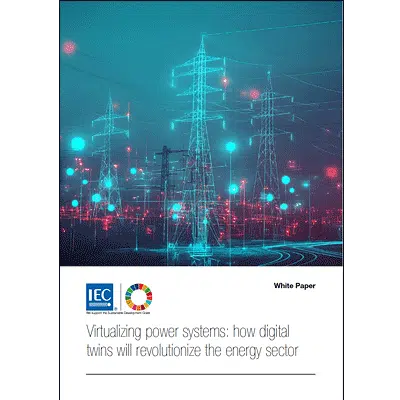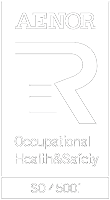A team developed the white paper from various organizations under the IEC Market Strategy Board (MSB). Prof. Maurizio Bragagni Esq OBE, CEO of Tratos Ltd., and Dr. Hiroshi Okamoto, TEPCO Power Grid, Inc., sponsored the project and contributed to its vision for the future of the energy sector.
Digital twins in the energy sector are digital – and often real-time – representations of physical grid assets. The new IEC White Paper on Virtualizing Power Systems: How Digital Twins Will Revolutionize the Energy Sector highlights the benefits of digital twin technologies. By enabling efficient system management, they help grid planners and operators overcome infrastructural challenges while supporting net-zero goals. Digital twins allow for the monitoring and identifying design alternatives to reduce carbon emissions, promoting sustainability.
As society becomes more interconnected, sectors must collaborate closely to leverage synergies, and digital twins play a vital role in this transformation. The paper addresses implementation challenges, recommending adopting core standards for data models and secure, open data exchange policies. These recommendations provide actionable steps for governments, standards bodies, and stakeholders to unlock the full potential of digital twins.
Digital twins are increasingly critical in the electrical industry as society becomes more connected. A digital twin is a virtual representation of a physical system, like a power grid, which allows for real-time monitoring, simulations, and predictive maintenance. This growing importance stems from the need to optimize energy efficiency, manage the complexities of distributed energy resources, and ensure system reliability.
Collaboration across sectors is essential to unlock the full potential of digital twin technologies. By integrating data from different industries—such as telecommunications, transportation, and energy—stakeholders can create synergies that enhance overall system performance. For instance, better coordination between the energy and transport sectors is vital as electric vehicle infrastructure expands.
However, to achieve this, the adoption of core standards for describing data models and the implementation of secure, open data exchange policies are crucial. Establishing common data protocols ensures interoperability across different systems, while secure data sharing encourages innovation and safeguards sensitive information. These standards offer actionable steps for government agencies, standards bodies, and industry stakeholders, laying the foundation for smarter energy systems that respond to dynamic market conditions and environmental needs.











